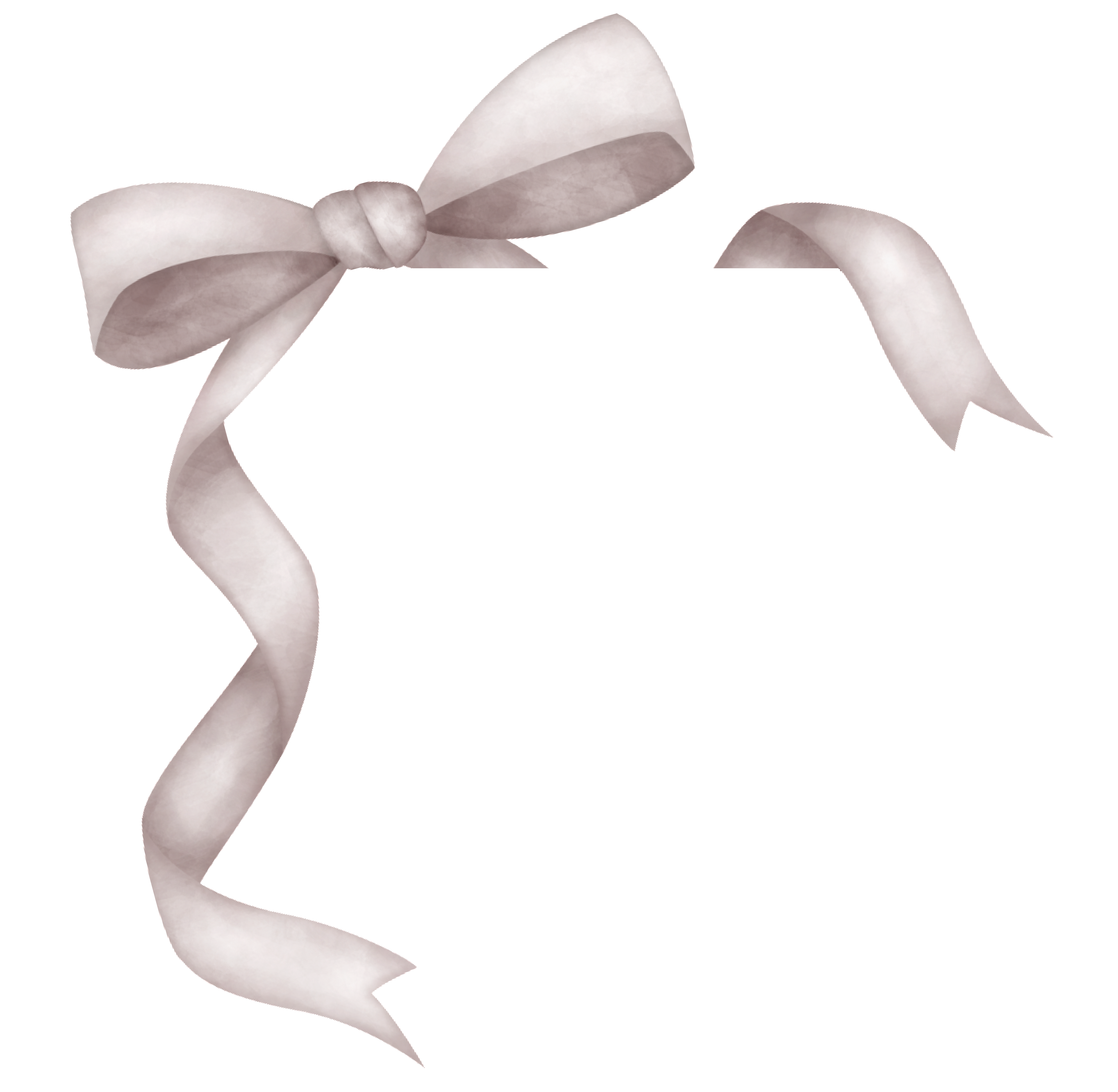If movies had souls, Dead Poets Society would be the first that ever felt kindred to my own. My family had the film on VHS and I would constantly replay it any chance I could get. Yet if you asked my grade-school aged self why I was so enamored with the film, I wouldn't have been able to tell you. All I knew was that watching it was a routine firmly fixed in my everyday life. Yet it wasn't until the end of high school that I realized why the teen drama was so easily felt in my bones.
Dead Poets Society talks of poetry, yes. But it also talks of "beauty, romance, [and] love" in all aspects of humanity. Passions to be pursued. Rosebuds to be gathered. Lives to be lived properly; to be extraordinarily seized. Watching this now in my adulthood, I can at long last see the film past its Tumblr-rebloggable, ultra-quotable-sheen. What I see and hear are the lessons my elementary self took to heart unknowingly; the fullness and kinship I continually felt when I came across those characters that spoke so deeply of my worries, and all that I wished for in life. The Dead Poets noted the arts as being the true fuel to our lives; as the things "we stay alive for". It's a quote that taught me one of my life's biggest lessons- that film, writing, music (and really, all forms of media and art), exist not only to make life a little more bearable, but to connect and tie you to any other soul that feels just the same. And perhaps even more vital, to help make the likeness of your own soul even just a little bit clearer. The moment my grade school self decided this film was important was the moment I chose to "live deliberately". And living deliberately for myself meant recognizing just how much art held a place in my life. Its mediums have allowed me to forge unbreakable bonds with others and find kinship in what we share. It helped me gently form an identity in all that I create and meld for myself.
Film Diary

Dead Poets Society (1989) dir. Peter Weir
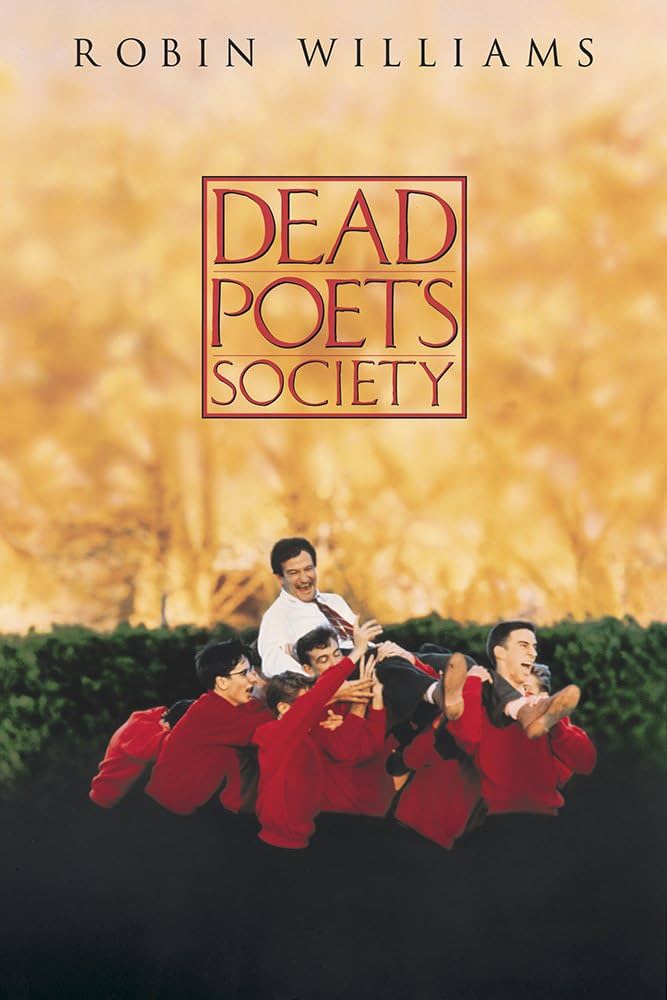

Aftersun (2022) dir. Charlotte Wells
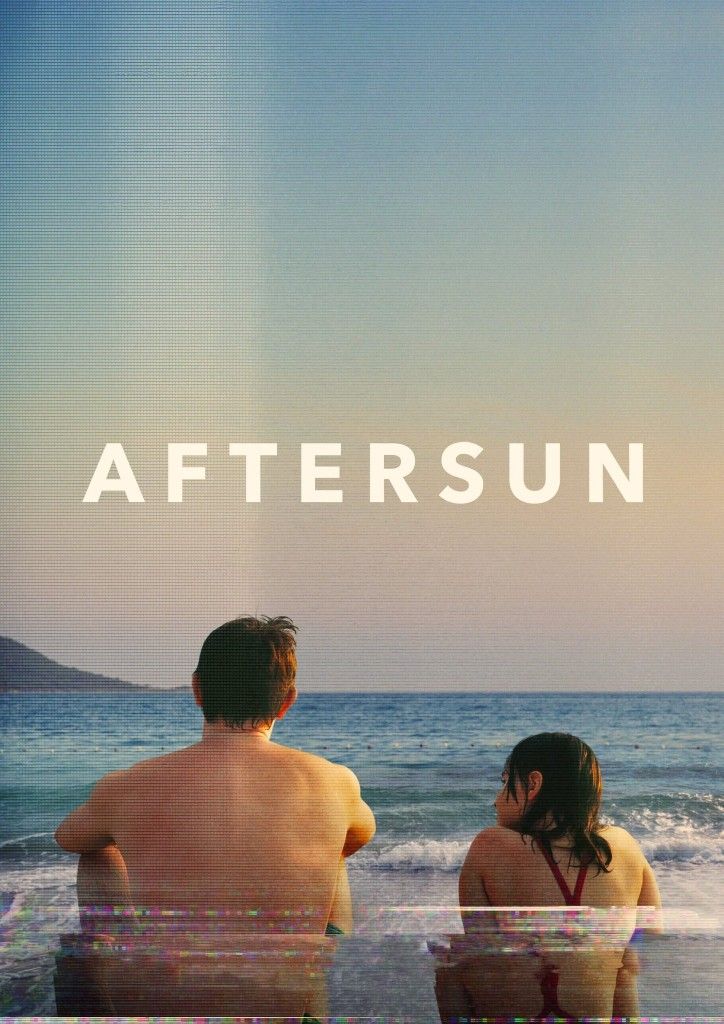

The entire time I was watching Aftersun, I could not explain what I was feeling. And weeks later after seeing the film, I still froze at the mere thought of attempting to explain. All I know is the last sequence finished, the credits rolled, and all at once I was in a mess of tears (which continued on and off throughout that night). And every now and then I'll see stills of the film floating around, and I have to punch down that same inexplicable knot in my chest before it tightens into something more tangible.
All I can say is that... seeing a snippet of someone's life, being able to witness their complicated feelings and ever turbulent thoughts at a more-than-delicate time, watching their unbridled pain unfold like a frozen bystander- experiencing all of that through someone else's memory, someone who loves them so, so deeply, is... almost too unreal to process. It feels private and numbing and by the time it's all over it's heartbreaking to be left not knowing what comes after.
All I can say is that... seeing a snippet of someone's life, being able to witness their complicated feelings and ever turbulent thoughts at a more-than-delicate time, watching their unbridled pain unfold like a frozen bystander- experiencing all of that through someone else's memory, someone who loves them so, so deeply, is... almost too unreal to process. It feels private and numbing and by the time it's all over it's heartbreaking to be left not knowing what comes after.
Sound of Metal (2020) dir. Darius Marder
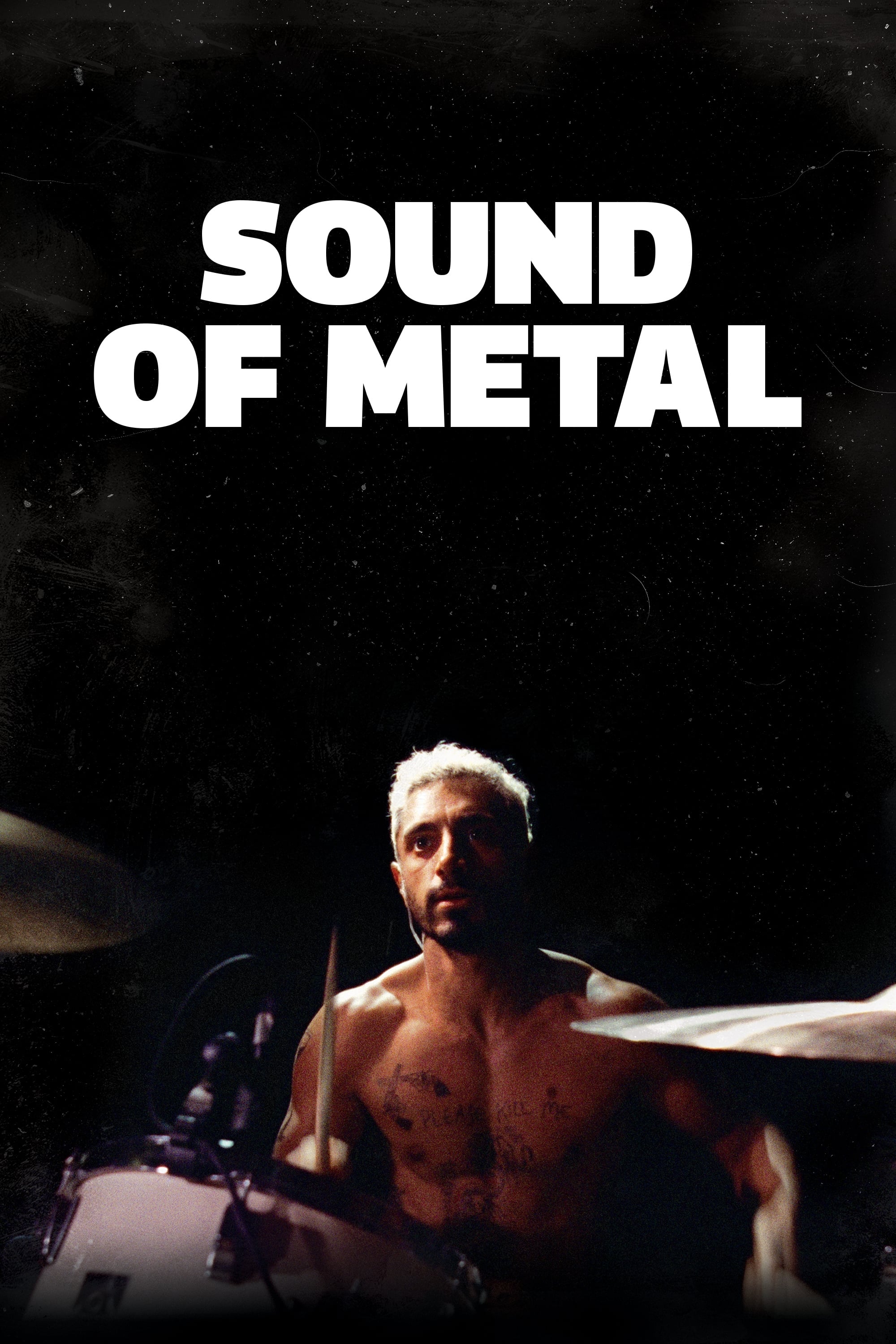

It hurt to watch Riz Ahmed's character Ruben. But it was the kind of hurt I needed to see at that moment. The ricocheting between a desperate want of something you've had, or used to be; yet trying to quietly come to terms with the fact that it has long gone. That time has passed. That circumstances are different. That you are, too. Ruben (and the entirety of the film itself) constantly goes back and forth between contrasts- hard and soft, stifling anger and timid fear, glaring thunder to absolute silence. But isn't that what living is? Being so desperate to do it properly, but not knowing how. So everything inside of you pulls you in opposite directions. You grasp at one thing, yet don't want to let go of another.
In a particularly heartbreaking scene, Paul Raci's Joe talks to Ruben about "stillness"- something I have always valued, but never saw in congruence with longing or desperation for life. I merely saw stillness as a pause. Somewhere to go for a break in-between chaos. but chaos, and the 'constantly moving' 'cruel world', would always be there to go back to. As soon as you unpause and press play, the burning world and troubles left behind would be there waiting. But at the heart of it, Joe implies stillness can be so much more. It can be you. Not needing to wade in one end or the other, being pulled left and right. It is giving yourself up to the feeling eating away at you- because you understand it IS you. To finally let yourself swallow the spurs and snags collecting inside your throat... a true moment of stillness. Sound of Metal showed me that such a debilitating desperation for something can bring you somewhere closer to your own self than you realize. That you aren't something to fix. That you don't have to keep expecting or asking yourself for things that are impossible to do or be. You can just sit there with your pen. And paper. Looking outside the window. In the stillness. In the quiet. And just be.
In a particularly heartbreaking scene, Paul Raci's Joe talks to Ruben about "stillness"- something I have always valued, but never saw in congruence with longing or desperation for life. I merely saw stillness as a pause. Somewhere to go for a break in-between chaos. but chaos, and the 'constantly moving' 'cruel world', would always be there to go back to. As soon as you unpause and press play, the burning world and troubles left behind would be there waiting. But at the heart of it, Joe implies stillness can be so much more. It can be you. Not needing to wade in one end or the other, being pulled left and right. It is giving yourself up to the feeling eating away at you- because you understand it IS you. To finally let yourself swallow the spurs and snags collecting inside your throat... a true moment of stillness. Sound of Metal showed me that such a debilitating desperation for something can bring you somewhere closer to your own self than you realize. That you aren't something to fix. That you don't have to keep expecting or asking yourself for things that are impossible to do or be. You can just sit there with your pen. And paper. Looking outside the window. In the stillness. In the quiet. And just be.
Daisies (1966) dir. Vera Chytilova
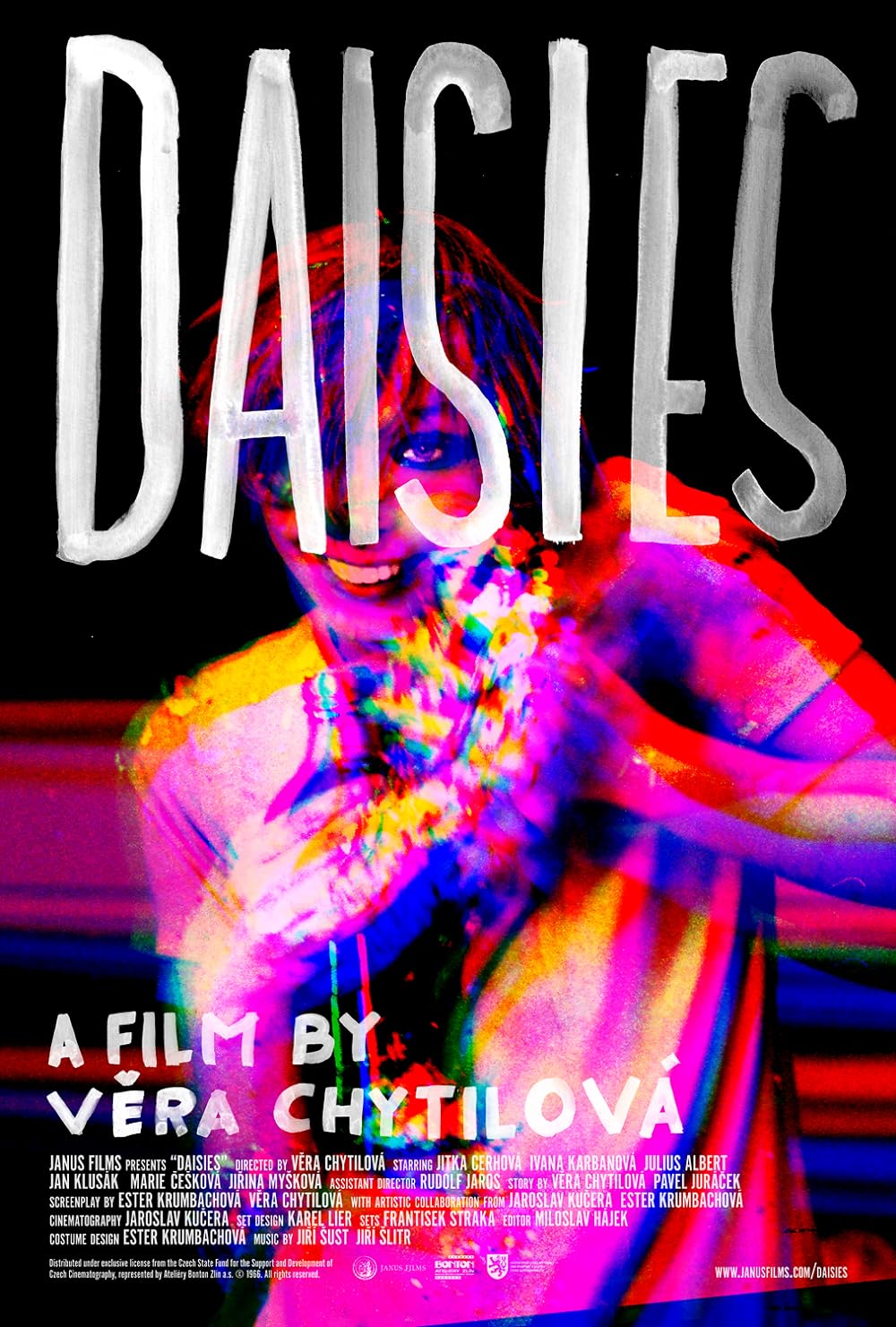

Prankster heroines with insatiable appetites and an endless closet of monochrome and primary-colored shift dresses. One of the film school screenings that has left a lasting impression— chandelier swinging, sausage scissor-cutting, dining table destruction and all. A female director that forever serves as a reminder that committing to your life's vision, despite endless pushback, could never be wrong— not when you end up creating something so colorful, chaotic, and true.
Almost Famous (2000) dir. Cameron Crowe
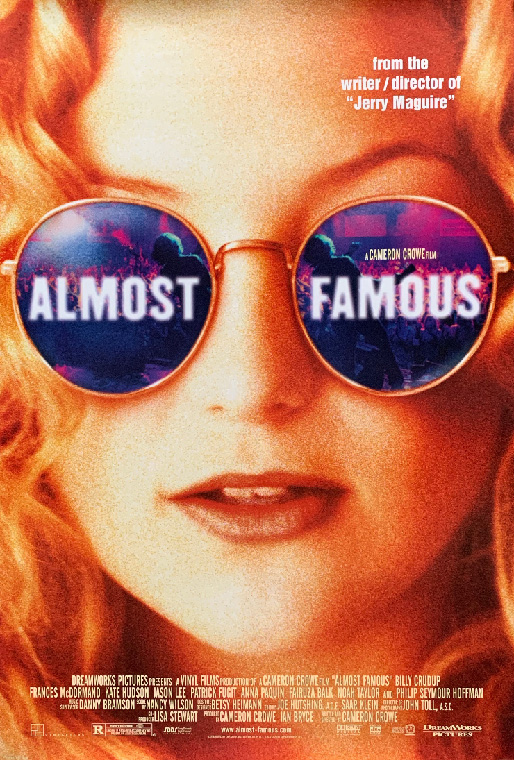

A very long and impassioned essay on Almost Famous is what helped get me accepted into USC's School of Cinematic Arts. A comfort film to the highest degree. I hear its warm, eccentric characters speak so earnestly and immediately feel like I am a part of something. I remember all the moments I fell in love with the soundtrack, too. Each song chosen so thoughtfully, enriching every scene with tenderness and warmth. And there is certainly something life-altering in watching a group of individuals feel so much for a single medium (in this case, rock music). Seeing how each are so entirely affected by its presence in their lives leaves you vicariously just as fulfilled. They meet and come together with those just as impassioned, pass down wisdom to those coming anew, some learning of its flaws and imperfections, and everything in between.
If there is one true thing I can say about myself, it is that I am moved by people that just... unequivocally love things. That deeply, radically, desperately, love things. Watching Almost Famous is such a gratifying experience to me because I love just as deeply, and to see this kind of deep love reflected in the eyes of so many characters... felt so naturally in every captured picture and uttered word... it's a completely sobering validation. It never fails to make me reflect on myself and my relationship with cinema- to remember all the people I have met through it, what I have created through the medium despite everything I've been through, and just how far simply loving something has taken me.
If there is one true thing I can say about myself, it is that I am moved by people that just... unequivocally love things. That deeply, radically, desperately, love things. Watching Almost Famous is such a gratifying experience to me because I love just as deeply, and to see this kind of deep love reflected in the eyes of so many characters... felt so naturally in every captured picture and uttered word... it's a completely sobering validation. It never fails to make me reflect on myself and my relationship with cinema- to remember all the people I have met through it, what I have created through the medium despite everything I've been through, and just how far simply loving something has taken me.
Stand By Me (1986) dir. Rob Reiner
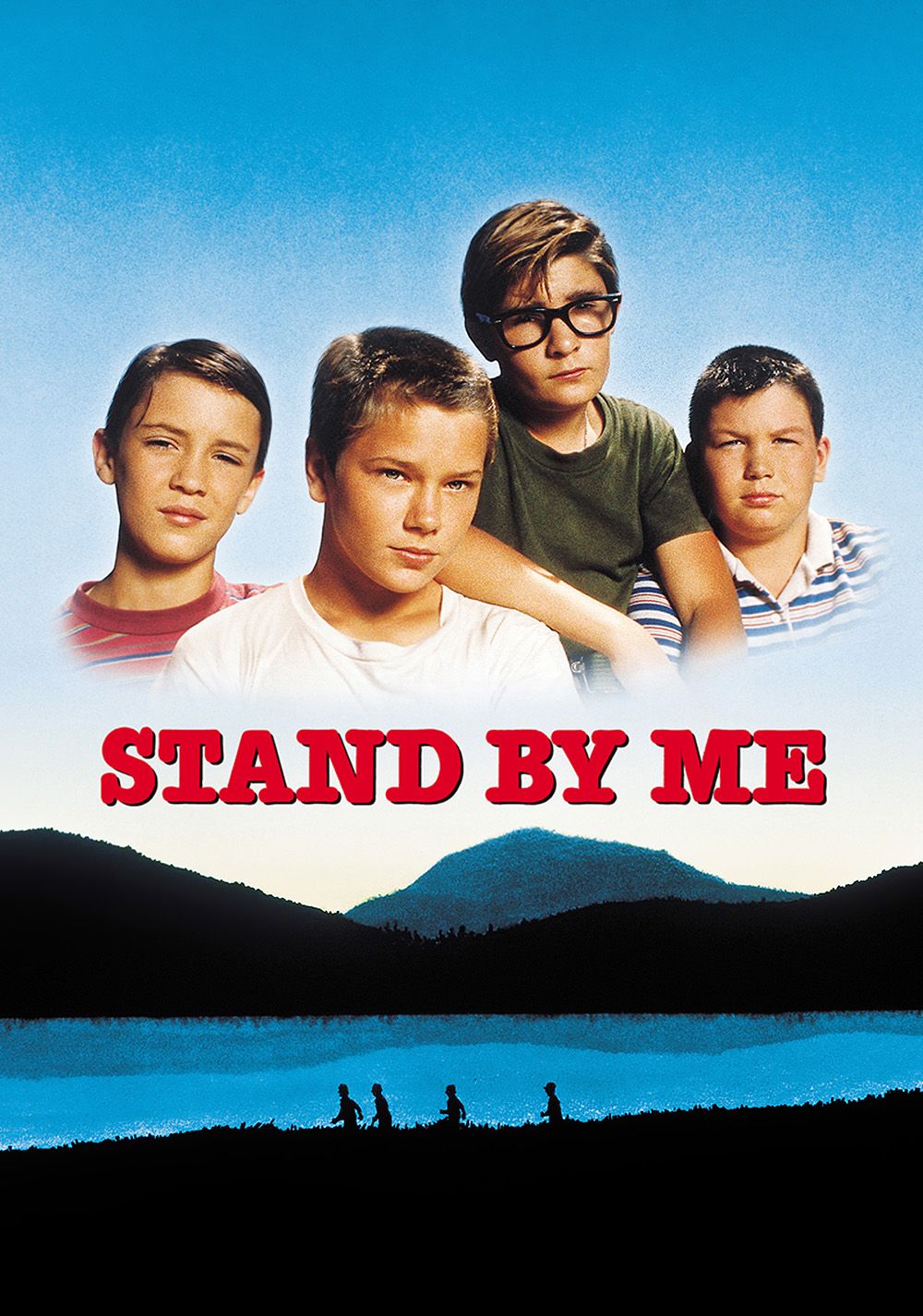

Our favorite films change with age and season. I can hardly say I feel the same about the films I loved when I was younger. Stand By Me, however, has unsurprisingly remained a constant- though the reasons why have grown and changed along with me. As a kid, I was always alone. So I found solace in this group of four friends (as foul-mouthed as they were). My early adoration of the film was rooted in an intense yearning for adventure and a whole lot of "wish-that-was-me"'s muttered under my breath. But with each yearly rewatch, my reasons shifted. It wasn't just about wanting that group of friends. It was about feeling incredibly lonely and misunderstood as a kid. And perhaps more than anything, wanting a dear friend like Chris Chambers (but also sometimes feeling like him, too).
One rewatch in particular made me realize just how demoralizing it could be to grow up not having anyone by your side- someone to know your interests, or to share your passions, fears and anxieties. Chris' unwavering support for his friends... (and especially Gordie) was shocking to me, simply because a friendship like that was so hard for me to comprehend. I'd never had one like that at that point. To have someone wholeheartedly rooting for you at such a young age... it was the kind of pure love and protection I had unknowingly always hoped for. Gordie's talent for writing was always there but his conviction and self-assurance never were- yet to know someone had complete and utter faith in him- what a blessing. And a true friendship one could only hope for.
While passions may be set aside for reality and responsibility, sometimes they also die with the neglected self. Or your fears of inadequacy. Or feeling like an impostor. Even at this age, I still hold those same fears. Seeing this mirror held up to me anytime I watch this film never fails to make me cry. And River Phoenix's performance as Chris just makes me so unbelievably sad.
I don't know how to end this, but I would at least like to say thank you to River. What he did in this film, and throughout his time in his craft, was so special. He made so many of us feel worthy. And less alone.
One rewatch in particular made me realize just how demoralizing it could be to grow up not having anyone by your side- someone to know your interests, or to share your passions, fears and anxieties. Chris' unwavering support for his friends... (and especially Gordie) was shocking to me, simply because a friendship like that was so hard for me to comprehend. I'd never had one like that at that point. To have someone wholeheartedly rooting for you at such a young age... it was the kind of pure love and protection I had unknowingly always hoped for. Gordie's talent for writing was always there but his conviction and self-assurance never were- yet to know someone had complete and utter faith in him- what a blessing. And a true friendship one could only hope for.
While passions may be set aside for reality and responsibility, sometimes they also die with the neglected self. Or your fears of inadequacy. Or feeling like an impostor. Even at this age, I still hold those same fears. Seeing this mirror held up to me anytime I watch this film never fails to make me cry. And River Phoenix's performance as Chris just makes me so unbelievably sad.
I don't know how to end this, but I would at least like to say thank you to River. What he did in this film, and throughout his time in his craft, was so special. He made so many of us feel worthy. And less alone.
The Truman Show (1998) dir. Peter Weir
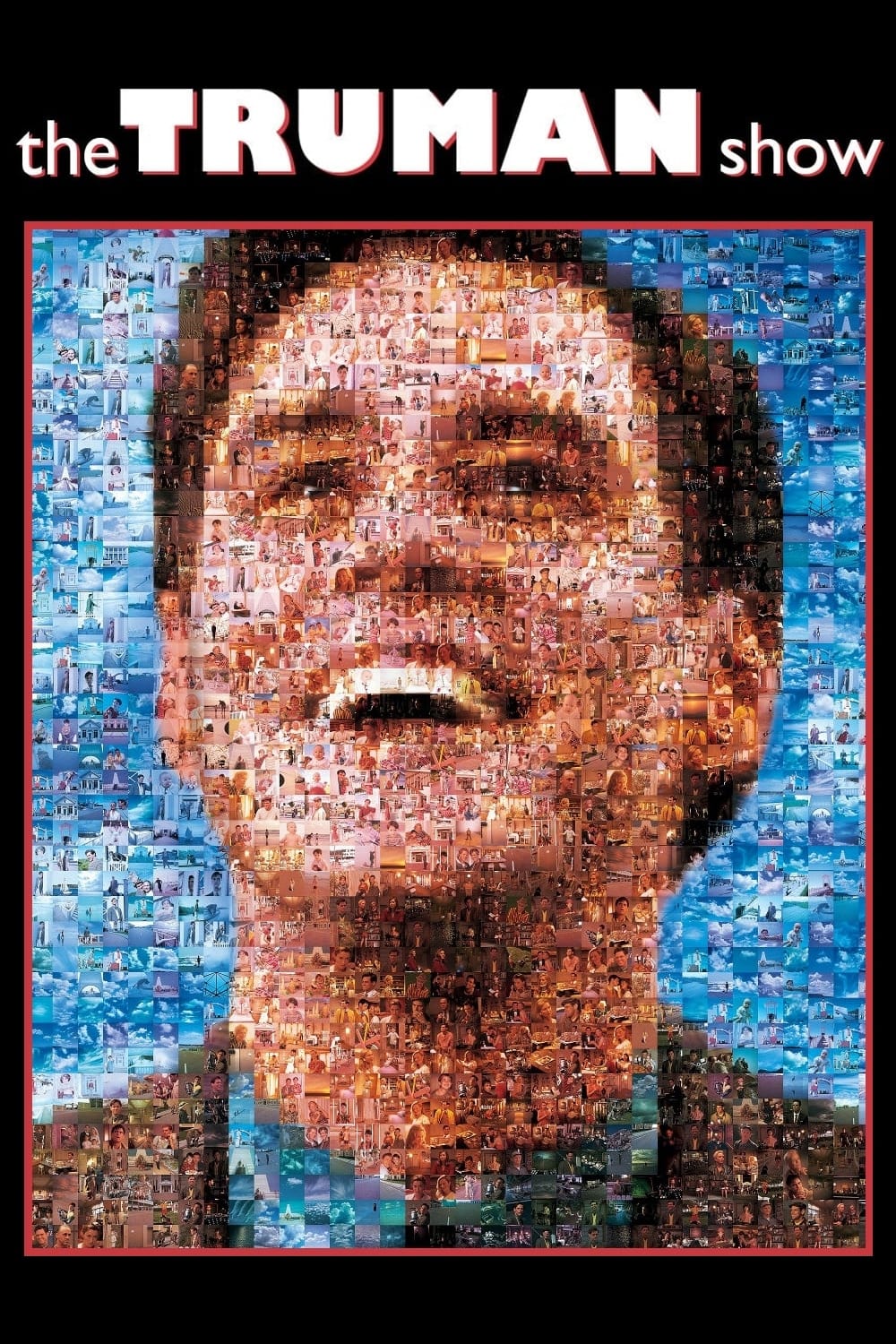

I do a yearly rewatch of The Truman Show because... how could I ever help it? Everything about it is so stirring, from its critique of media consumption, privacy, and celebrity obsession to the way it is just so thoughtfully and meticulously shot. I could write pages about its titanic brilliance— Peter Weir's altruist direction as something to behold; Andrew Niccol's original screenplay as a work is so revealing of humanity in the most imaginative sense, a feat any writer would hope to accomplish; and a performance from Jim Carrey that unceasingly makes you want to reach out to the screen and offer a hand of support.
A lot can be taken from the film thematically, but every time I've watched it, all I've ever been left with is a paralyzing sort of sadness. How can your heart not break at seeing someone so powerless in their own life, grasping at any minuscule moment that even slightly nudges them towards their humanity and free will? My purest love for the film stems from the quiet, careful characterization of Truman himself. As small as his attempts may be, he tries so incredibly hard to figure out what life could really be beyond everything that's been decided for him. He is pushed, pulled, and manipulated in countless ways and yet he still remains curious about life, assured of how he exists inside his head. He sails through unbelievable childhood trauma; then reaches, quite literally, the wall at the end of the life he's always known. And yet he smiles, takes a bow, and steps into the unknown. The phrase "how's it going to end" has stayed with me for so long. How can I help but worry about the future? There's not much we can control in this life, but seeing someone exist in a completely fabricated bubble, so desperately and bravely break out of it brings a bittersweet kind of hope. When Truman's fingers graze that once distant blue sky, a rigid wall becomes an open door. A message that small attempts can always lead to something bigger- that a life beyond is surely possible.
A lot can be taken from the film thematically, but every time I've watched it, all I've ever been left with is a paralyzing sort of sadness. How can your heart not break at seeing someone so powerless in their own life, grasping at any minuscule moment that even slightly nudges them towards their humanity and free will? My purest love for the film stems from the quiet, careful characterization of Truman himself. As small as his attempts may be, he tries so incredibly hard to figure out what life could really be beyond everything that's been decided for him. He is pushed, pulled, and manipulated in countless ways and yet he still remains curious about life, assured of how he exists inside his head. He sails through unbelievable childhood trauma; then reaches, quite literally, the wall at the end of the life he's always known. And yet he smiles, takes a bow, and steps into the unknown. The phrase "how's it going to end" has stayed with me for so long. How can I help but worry about the future? There's not much we can control in this life, but seeing someone exist in a completely fabricated bubble, so desperately and bravely break out of it brings a bittersweet kind of hope. When Truman's fingers graze that once distant blue sky, a rigid wall becomes an open door. A message that small attempts can always lead to something bigger- that a life beyond is surely possible.
Columbus (2018) dir. Kogonada


Columbus is one of my most rewatched movies, and with good reason. I go back to a beloved film very much in the same way I revisit my childhood room. Every treasure and precious possession still in place. All my past selves settled in each nook and crack. It's a place frozen in time, carrying a quiet comfort waiting to be felt. But you're also a different person each time you visit- you pick up on things you missed. You give your younger self a hand to hold if it had none to grasp. A shoulder to cry on where you used to cry alone. You wander through shelves and flip through pages, memories rewiring in your brain. A rewatch is a holy act to me. Lenses change. Something new is learned. Validation is found. And every version of you that has ever watched this film gently gathers around you, consoling you in your hour (or two) of need.
I am going to spare any technical commentary because Columbus has quite simply become a beacon of comfort to me. I watch it and see myself. And while it may not necessarily make me feel less alone, it certainly makes me feel okay in that lonesomeness. That I can dwell in it. Make peace with it. And maybe one day, find rapture in it.
I am going to spare any technical commentary because Columbus has quite simply become a beacon of comfort to me. I watch it and see myself. And while it may not necessarily make me feel less alone, it certainly makes me feel okay in that lonesomeness. That I can dwell in it. Make peace with it. And maybe one day, find rapture in it.
Shoplifters (2018) dir. Hirokazu Koreeda
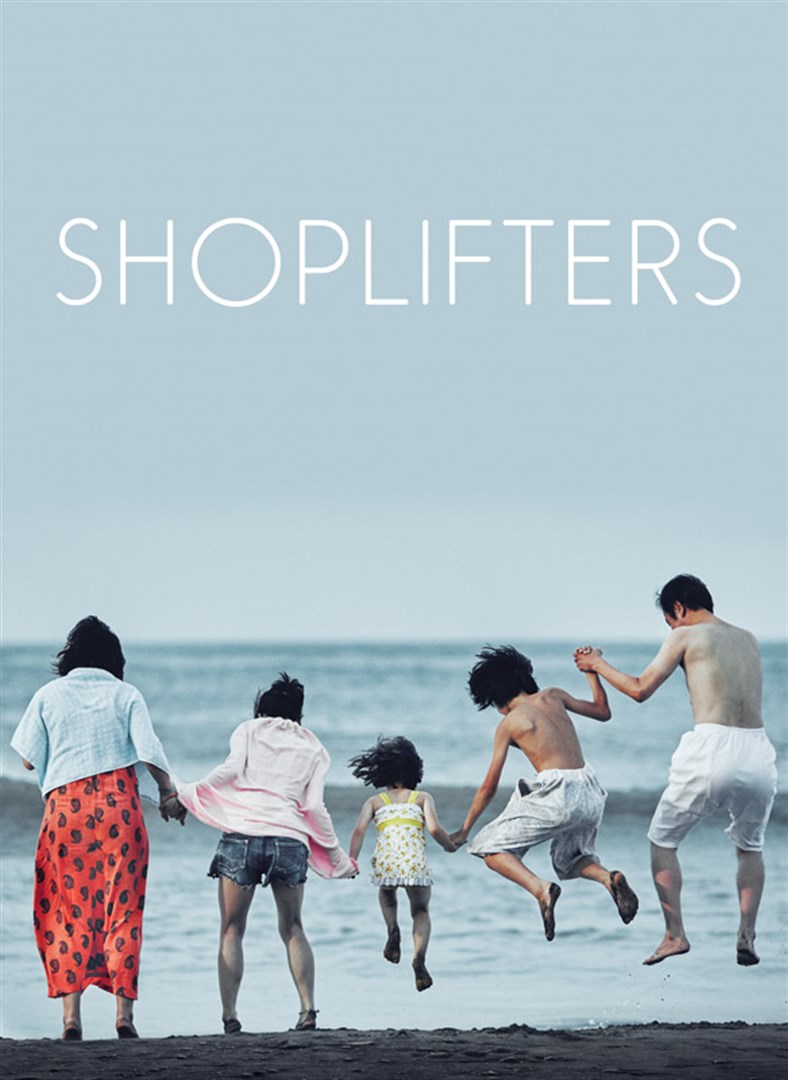

The topic of chosen families always hits close to home. Regardless of the choices individuals make in Shoplifters, they do these things to survive. And more than that, their exploits bring them together- away from loneliness. Away from loveless, violent homes. They protect the abandoned Yuri, showing her that family is not the neglect she has always known. They choose each other. This film was so devastating in how these self-forged bonds, however fiercely loyal and true they may be, will somehow never be taken as seriously by society as blood. Even if that blood hurts and destroys you. I want to crawl inside a hole every time the credits roll but every small bit of warmth before it will always be worth the watch.
The Umbrellas of Cherbourg (1964) dir. Jacques Demy
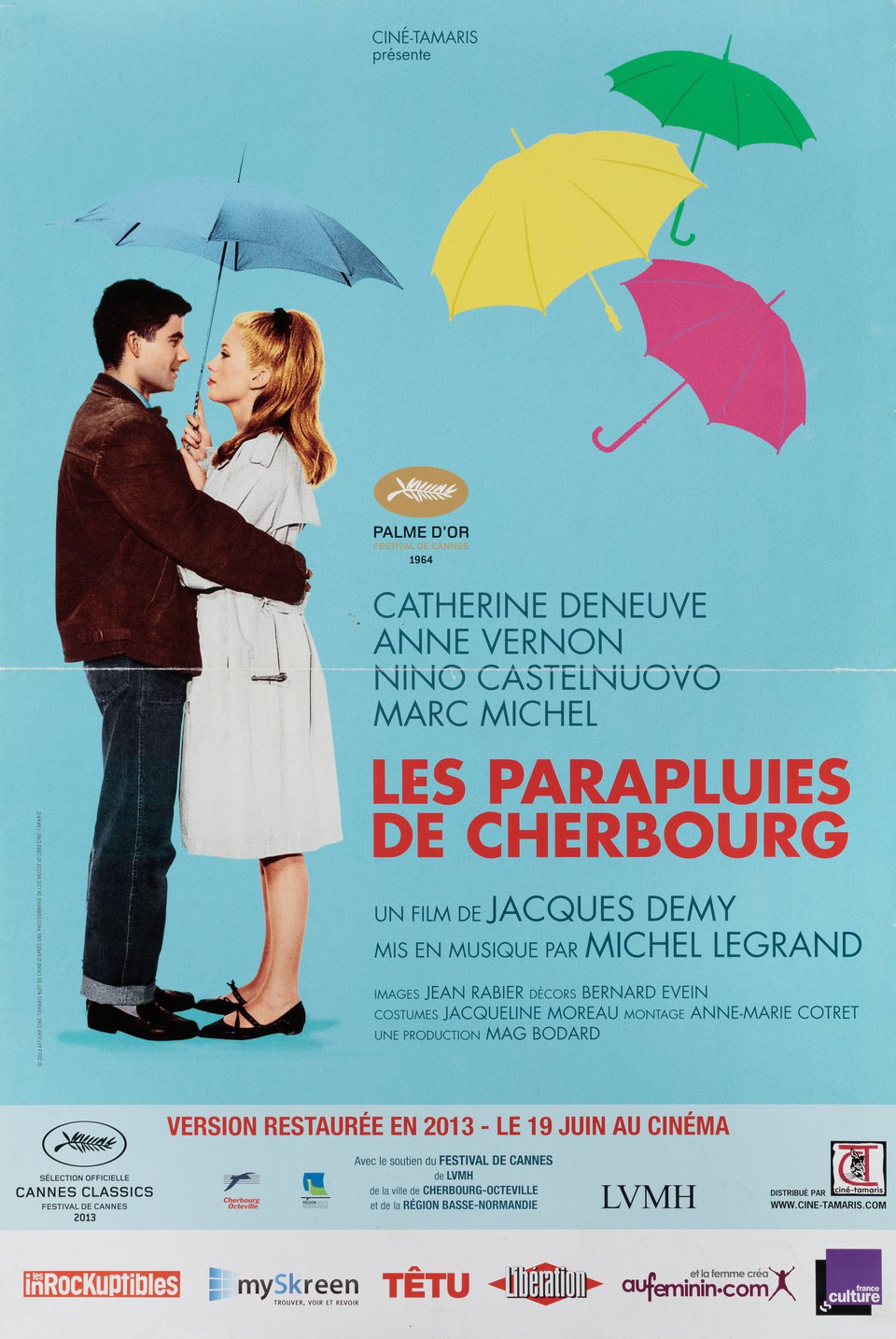

The thing I love about cinema is that it transforms with you. You consume something on some arbitrary Wednesday for a class or assignment and it means nothing to you but an answered question or final grade. It plays in the background in someone else's house or you leave it on because there's nothing else to watch. But you take it in 6 years later and suddenly you're holding your breath wondering why your head and heart hurt so much from watching a 2 to 3 minute sequence of two characters sitting in silence.
The first time I watched The Umbrellas of Cherbourg, I was in high school. And I was in awe of how beautiful it was. Who could deny all those bright pinks and deep blues? Those ornate, floral patterns that embellish every inch of screen? Genevieve's dainty little ribbons in her perfectly coiffed hair? The second time I watched it was for a production design class in college- and my appreciation for it grew all the more, but almost exclusively in a technical sense. Yet it wasn't until just recently that I watched that last scene of the two main characters meeting at the gas station, starring out into the snow, and felt my heart hopelessly ache. A quiet, numbing ache that was awakening in the most gentle sense, leaving me with little to no desire to gush about ribbons and colors. Because all I felt was sadness.
But this is why I love film so much. Your life changes and so do your priorities and ambitions. So what you watched back then molds and melds with you, too. Sometimes you watch something only because of environment or circumstance, but time passes, and beautiful or horrid things happen to you and suddenly that said film is leaking into your life with new meaning and purpose.
The first time I watched The Umbrellas of Cherbourg, I was in high school. And I was in awe of how beautiful it was. Who could deny all those bright pinks and deep blues? Those ornate, floral patterns that embellish every inch of screen? Genevieve's dainty little ribbons in her perfectly coiffed hair? The second time I watched it was for a production design class in college- and my appreciation for it grew all the more, but almost exclusively in a technical sense. Yet it wasn't until just recently that I watched that last scene of the two main characters meeting at the gas station, starring out into the snow, and felt my heart hopelessly ache. A quiet, numbing ache that was awakening in the most gentle sense, leaving me with little to no desire to gush about ribbons and colors. Because all I felt was sadness.
But this is why I love film so much. Your life changes and so do your priorities and ambitions. So what you watched back then molds and melds with you, too. Sometimes you watch something only because of environment or circumstance, but time passes, and beautiful or horrid things happen to you and suddenly that said film is leaking into your life with new meaning and purpose.
Blue Valentine (2010) dir. Derek Cianfrance
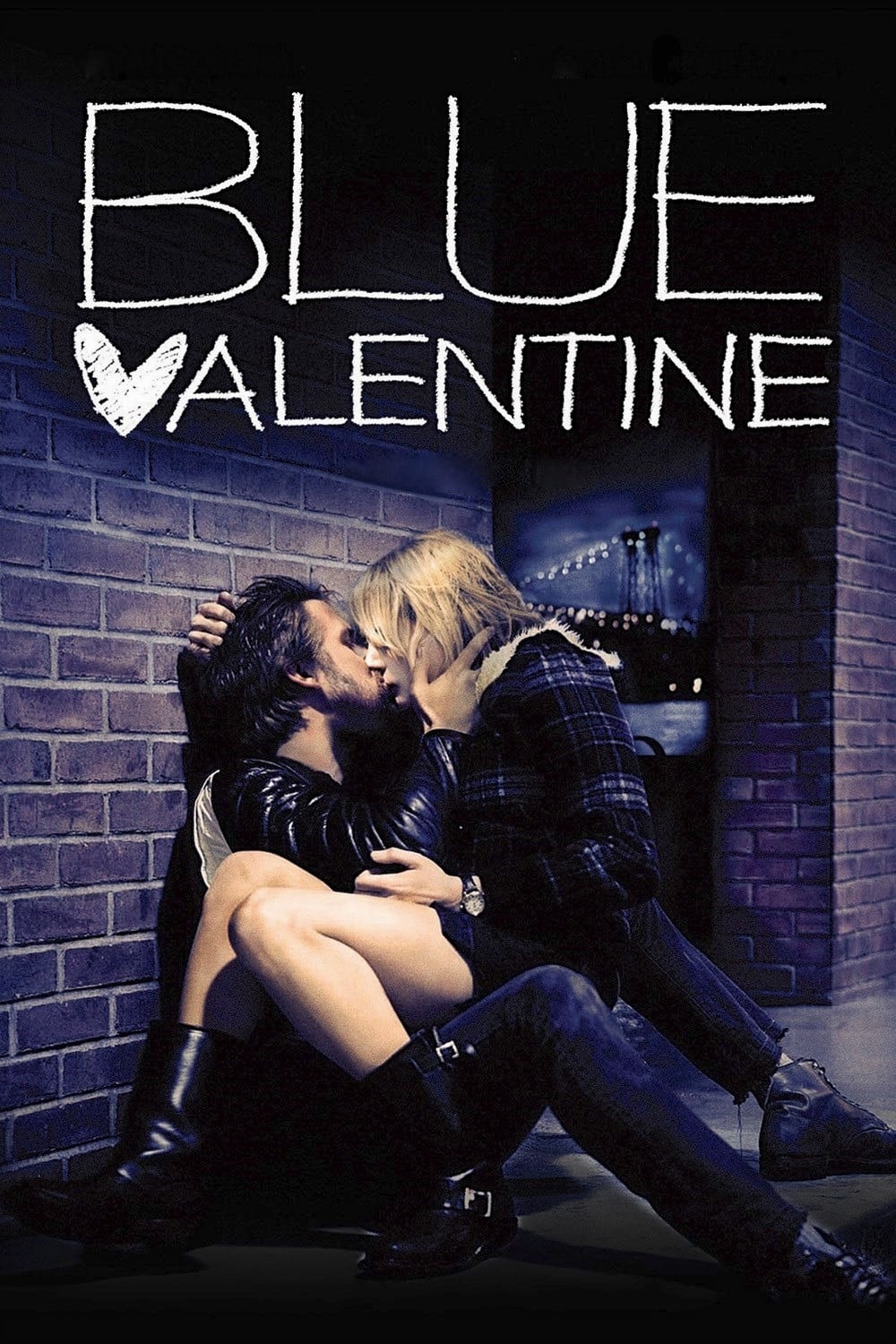

I don't want to call it heartbreaking because I think it is so far and clearly beyond that. It's one of the first films I've ever had such a visceral reaction to. The colors and subtleties. Every emotion and spoken word, sobering. I have the soundtrack on vinyl and play it every time I want to have a cathartic cry. Grizzly Bear is a godsend. And You & Me by Penny and the Quarters has remained an all-time favorite track, too, despite the crushing, hand-on-heart weight it carries over from the film.
Matilda (1996) dir. Danny DeVito
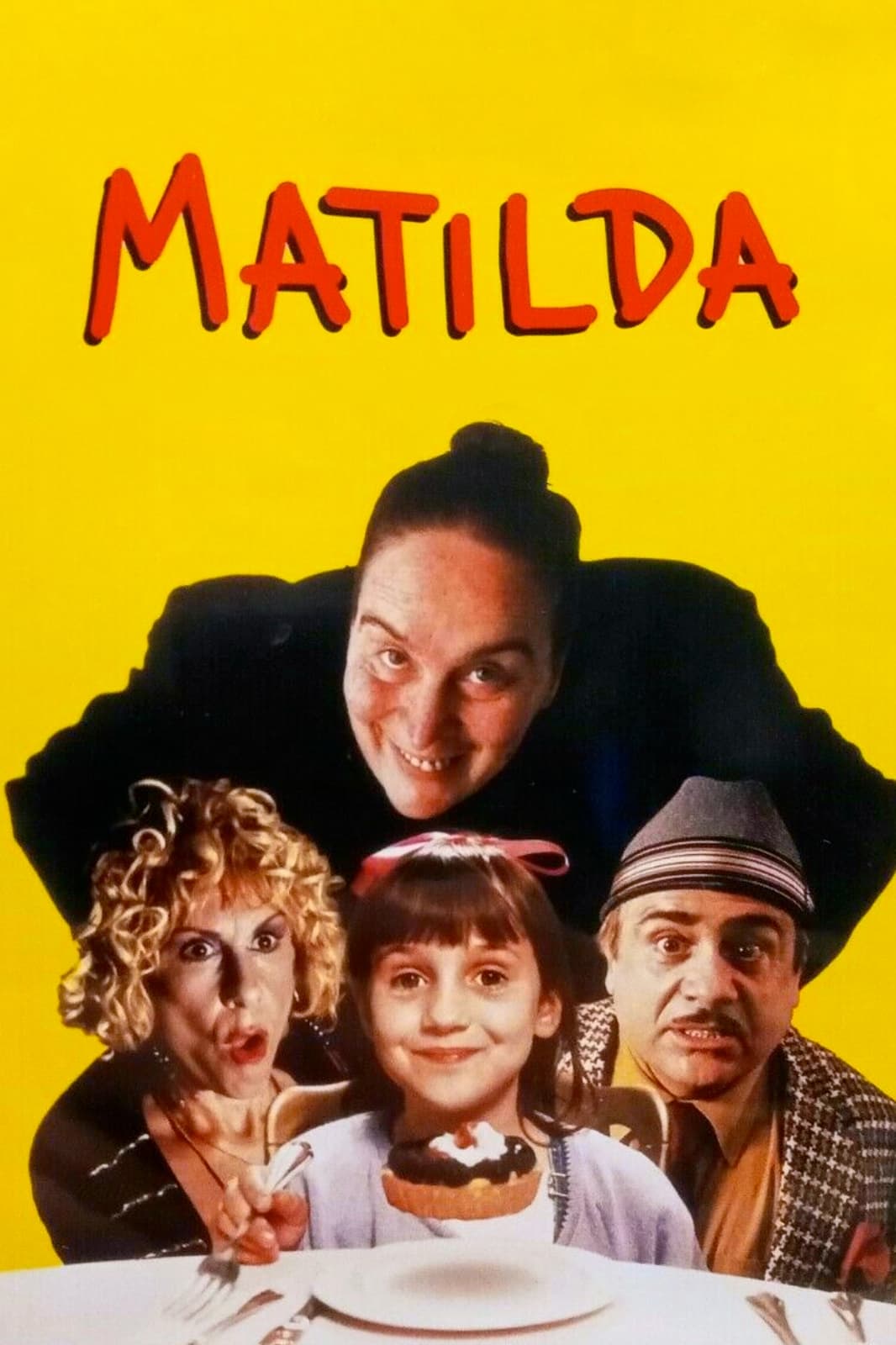 o
o
 o
oOne of the ultimate comfort films from my childhood. I'm not sure if I read the book or saw the film first, but that's just how much the two are remarkably intertwined in my mind. I loved both. And growing up, each of them made this shy, quiet girl feel a lot less alone. While I wasn't technically an only child, it definitely felt like it the majority of the time. So watching Matilda at that age not only felt like looking into a mirror.... it also felt like finally finding a dear friend. But seeing this film as an adult offers a very different kind of comfort now. We certainly cannot pick the circumstances and environments we are born into, but to realize there is a constant possibility in this world of finding genuine support and love beyond what you're initially handed is a tenderness and comfort I will forever cling to. To those that are constantly crushed by growing pains and the pangs of loneliness around them, our own spaces of safety and comfort can be radiantly, and beautifully created, with beloved 'found families' and support systems we choose for ourslves. Matilda's resonating message proves you can be your own remedy to any crushing blows you've been dealt. And until we find that precious support, we seek solace in films and stories like these, in our own metaphoric cottages, covered in honeysuckle and surrounded by wildflowers.
Mysterious Skin (2004) dir. Gregg Araki
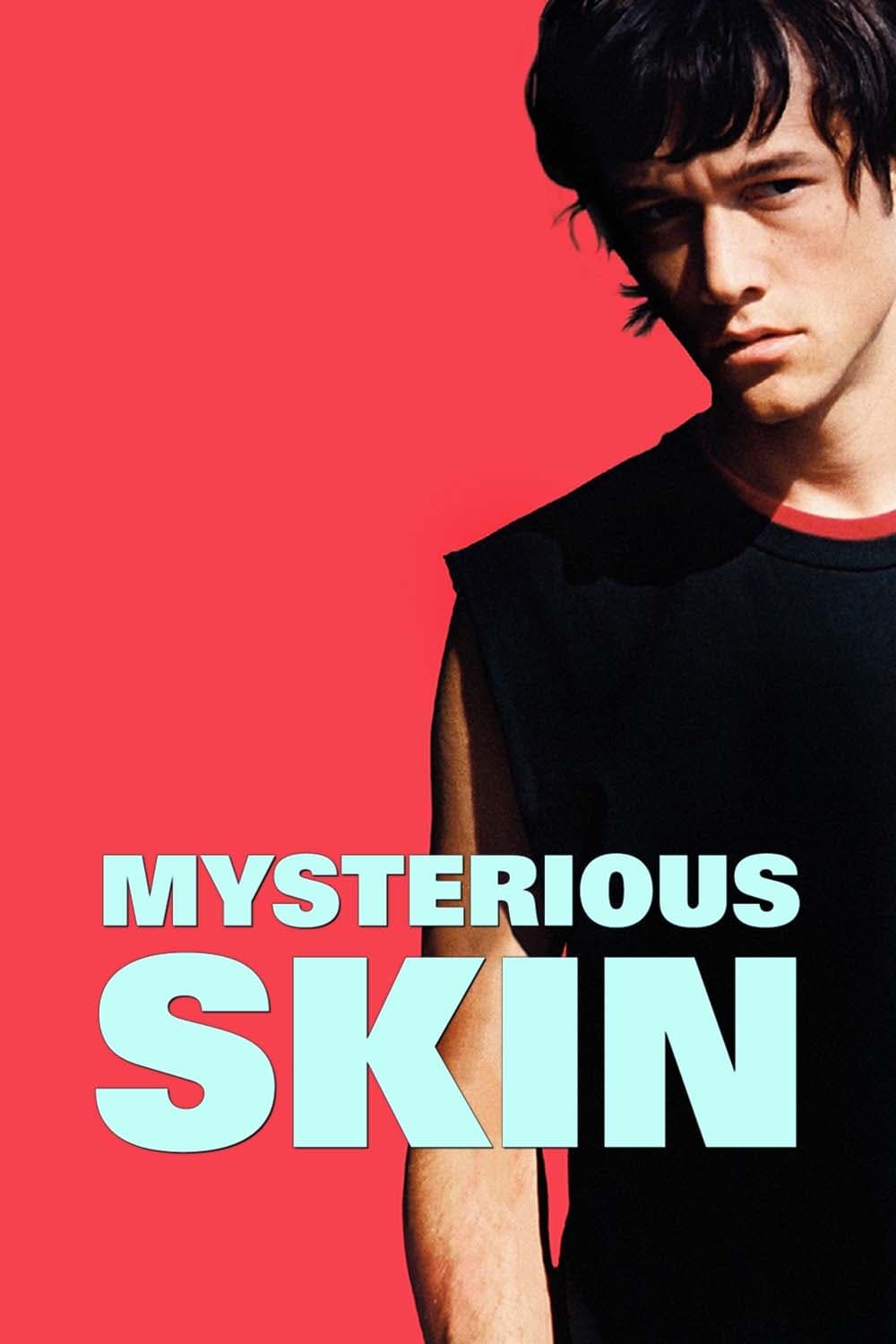

Just.... one of those films I'm not sure I'll ever be able to properly write about. At least- not in a way that I feel will ever do it justice. A film that is incredibly hard to watch, if only for the enormous weight it holds. Because you watch it and your stomach churns and the trauma you've always carried shape-shifts in a way you just can't really describe. One of the rare films that portrays the effects of abuse so.... quietly. Tacitly. Which only makes its silent beats and held breaths all the more devastating to watch. Because scars pale and people pass but the past still follows us. Unabated. Forever unchanging. While it is a film I rarely rewatch, in its moments of reassurance and self-protection, it holds my heart so softly, time and time again.
On a side note, meeting Gregg Araki at a screening and being able to tell him how much his filmmaking (and this film especially) has meant to me was one of the highlights of my time at university. I will never forget the radiance and warmth he emitted as he carefully listened to me. A kindness and strength I can only hope to emulate, not just in my work, but in the way I move through life.
On a side note, meeting Gregg Araki at a screening and being able to tell him how much his filmmaking (and this film especially) has meant to me was one of the highlights of my time at university. I will never forget the radiance and warmth he emitted as he carefully listened to me. A kindness and strength I can only hope to emulate, not just in my work, but in the way I move through life.
Whisper of the Heart (1995) dir. Yoshifumi Kondo
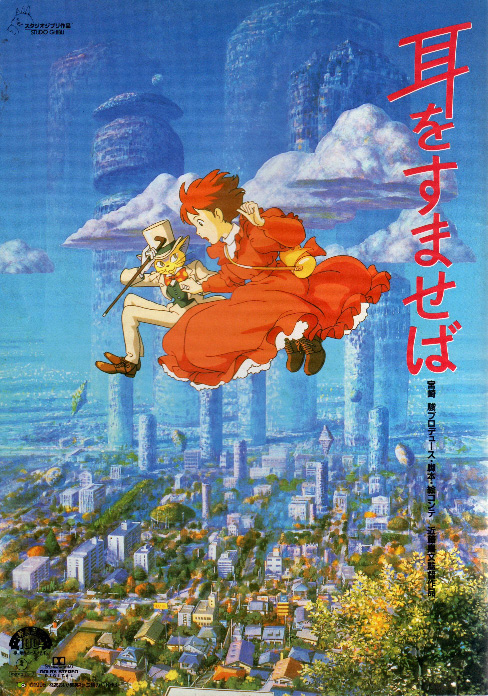 o
o
 o
oA lot of hesitation and societal pressure can come with straying off the path expected of you. Watching this film taught me a lot about the creative process- that you can't take shortcuts when it comes to polishing your skills; that the idea of following your dreams isn't always so simple; that nonstop work doesn't always mean instant success; and that rather than fame and prestige, there is a lot more value in what you feel about your work and the select few (or many!) you choose to share it with. The depiction of Shizuku trying to find her place in her beloved medium felt so utterly tangible to me because those scenes of her struggling in and out of self-doubt felt like looking into a mirror. And watching her and those supporting her only made me want to cheer for her more. Finding your own voice and place in your passion is a neverending process, and sometimes, "not knowing" is okay (a note to self and everyone else!).
Now and Then (1995) dir. Lesli Linka Glatter
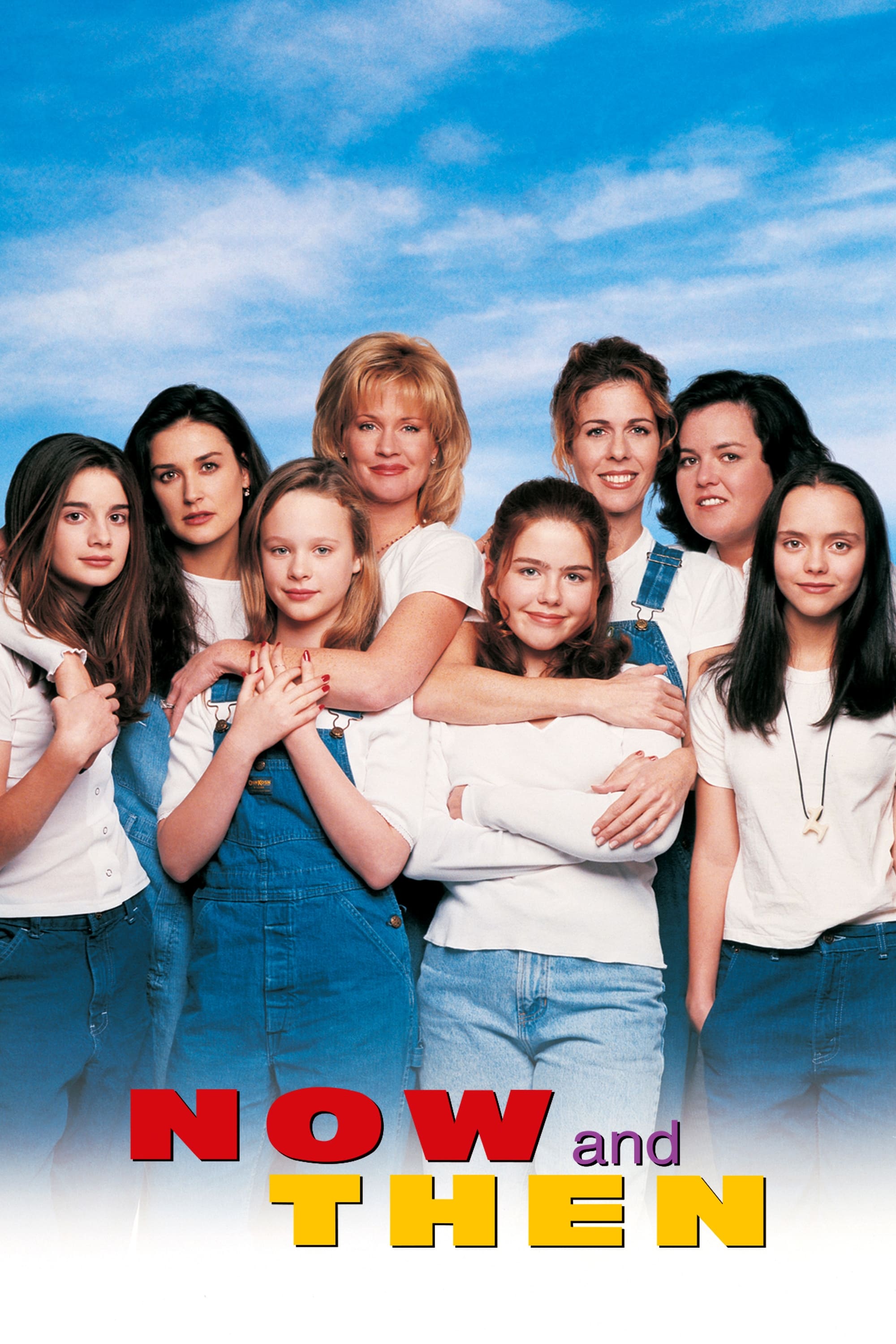 o
o
 o
oColor palettes that make the phrase eye candy seem entirely too inadequate (eye feast maybe? or banquet, perhaps). My favorite era portrayed so precisely, with gaundy, kitschy costuming and design. Dusty attics, hair ribbons, floral patterns, and streamers on worn out bikes. A group of girls I wish I knew growing up. And the four of them growing up despite it all. Another comfort film to swim into year after year- singing along to all the same euphoric summer songs on the radio.
The Handmaiden (2016) dir. Park Chan-wook
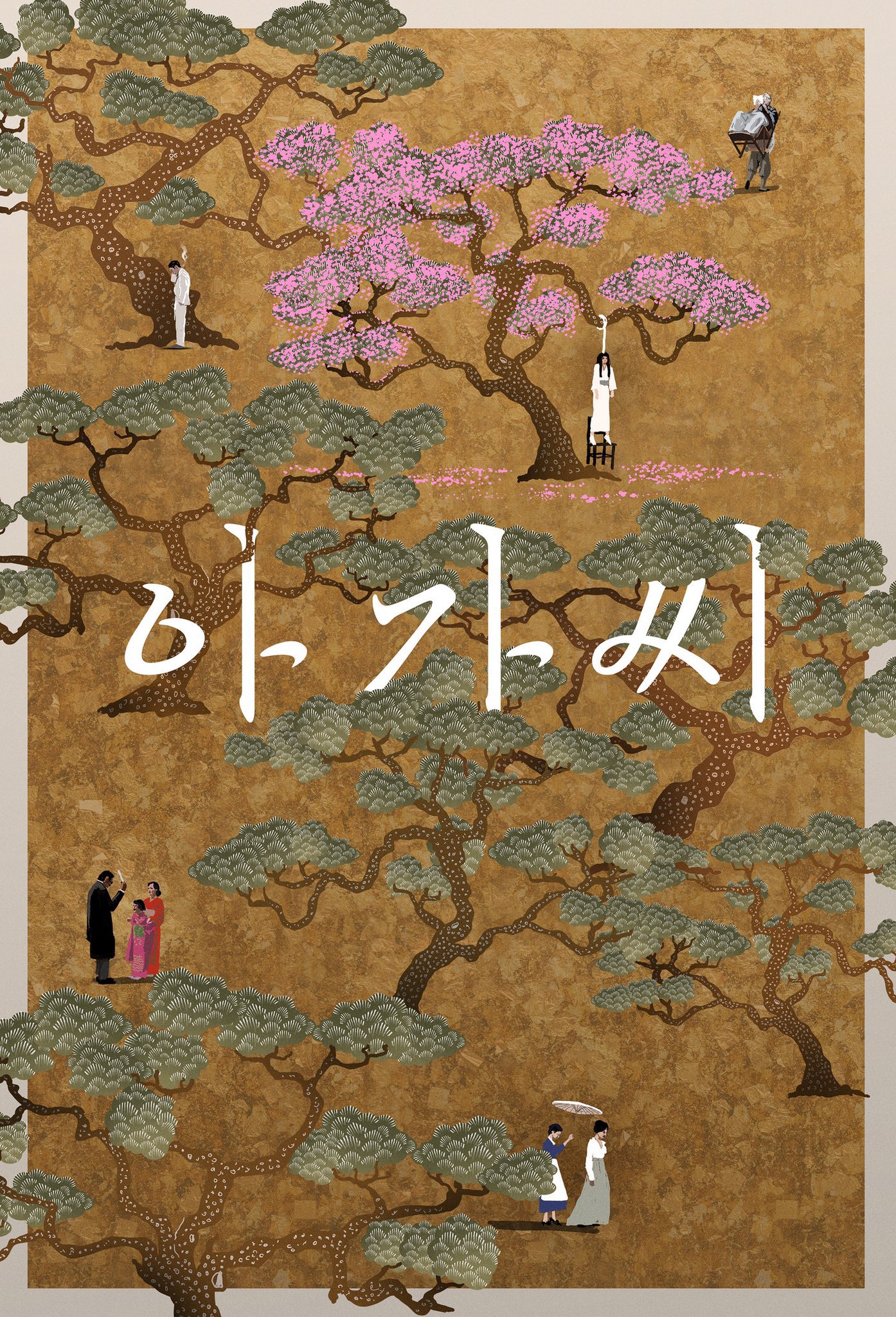

Everything about The Handmaiden is breathtaking- production design, costuming, color grading, cinematography- a film adorned so beautifully; too thoughtfully intricate and meticulous to ever be considered excessive. At its core, it's an exquisite Gothic romance. What gets me every time are the little moments of longing. The yearning stares! The lingering hands! And more than anything, the focus on women's desire and autonomy; how survival instincts have developed within so many of us just to endure both the traumatic past and the violent present, expecting us to be everything and nothing all at once. What arises amidst all of this, a triumph so sweet and tender, and utterly satisfying.
If Beale Street Could Talk (2018) dir. Barry Jenkins
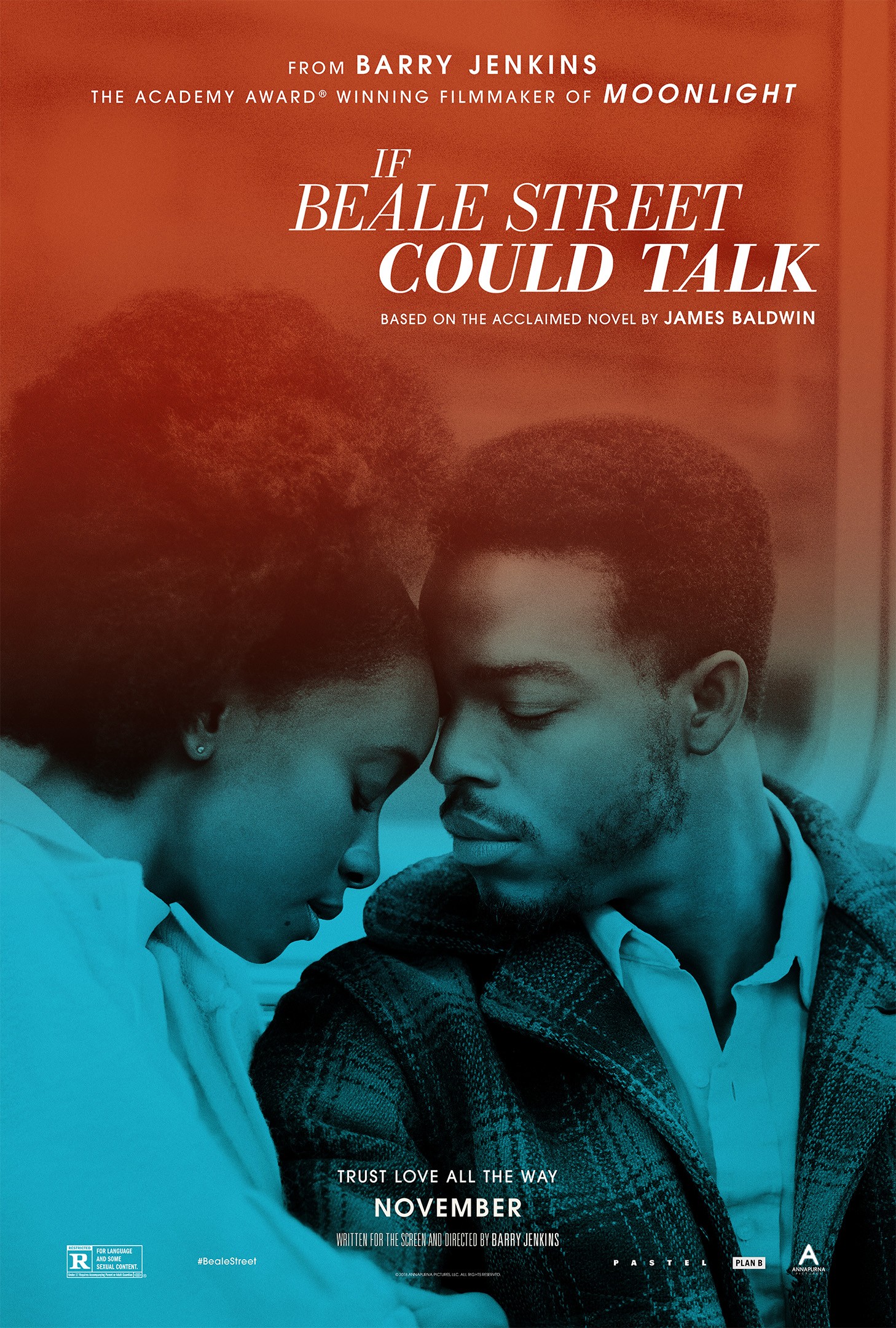

Barry Jenkins walks us through an entire life of love being formed. A portrait of true love. This was the film that made me want to pursue anything even remotely related to film again after having such a damaged, tumultuous relationship with it. Because I watched it and only felt peace. I felt graced by its warmth. And by the end, a new passion for cinema had bloomed (this film was actually the reason for Depth Cues' creation!). I heard Miles Davis' Blue in Green playing in one of the film's most powerful scenes and was moved to tears. It doesn't feel right to call it romantic because that word barely touches on the love that saturates this film. It permeates from every scene. The acting- each individual, no matter how small the part, brings such complexity and is so in tune with every emotion conveyed. The writing- so mindful and loving in the handling of James Baldwin's original text. The score- capturing both the pain and magic of Fonny and Tish's relationship with such grand ease, tracks “Agape” and “The Children of Our Age” were two of my most played songs that 2018.
Shirkers (2018) dir. Sandi Tan


A film that 1) made me fall in love with film all over again- back to being that kid, overflowing with ideas that were sometimes magic but mostly just well-meaning and clumsy, making shit for the fun of it instead of taking everything so goddamn seriously and 2) showed me there can be relief and reclamation to the heinous shit that‘s been done to our creative and personal lives- that regardless of what's been taken from us, it is possible to still have the final say.
My Neighbor Totoro (1988) dir. Hayao Miyazaki
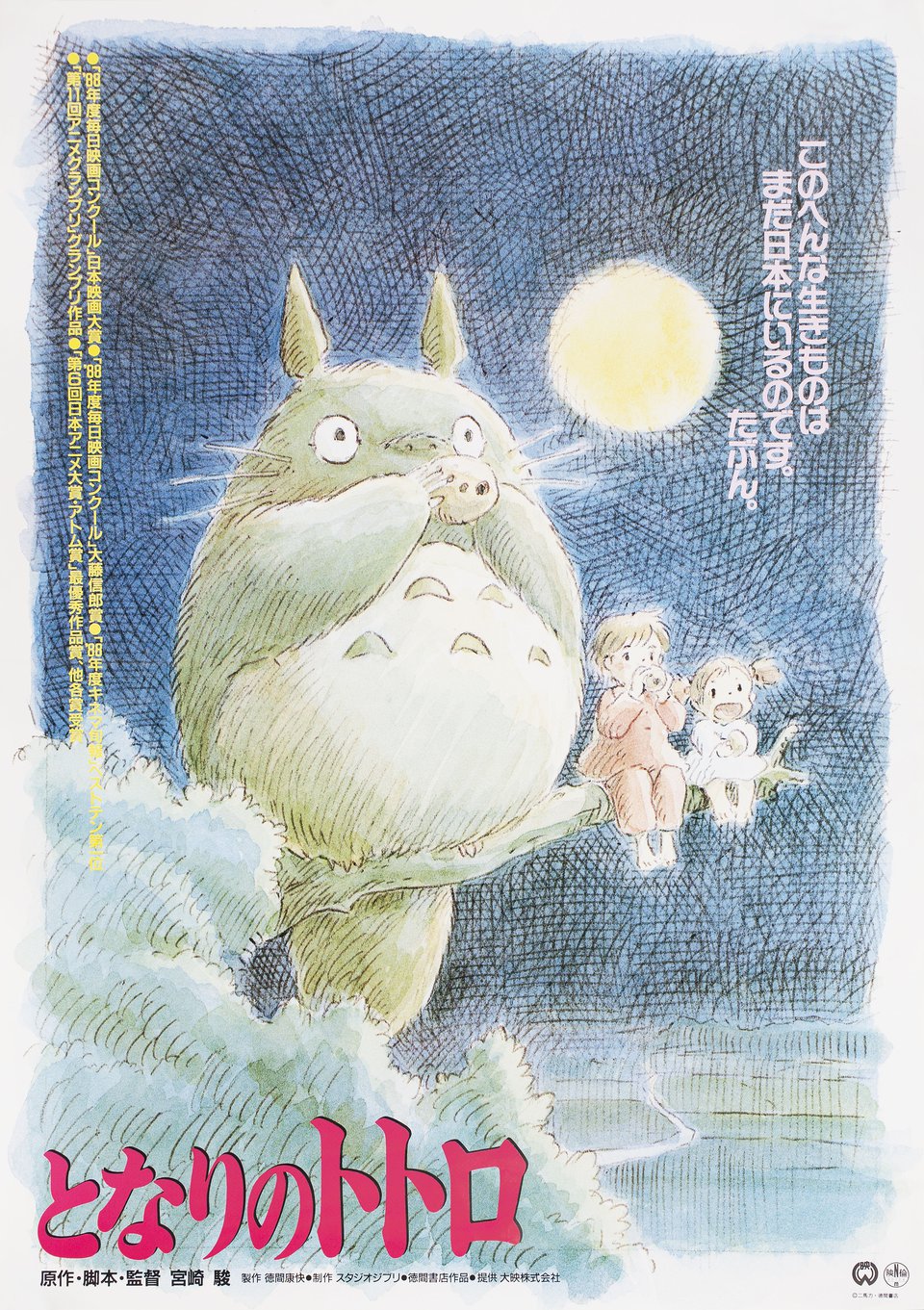

Living vicariously through its wild open skies, towering trees, and warm summer nights. A film to cherish the childhood wonderment that has always lived in me, and that will always find ways to surprise me, even when I am feeling empty, jaded, and utterly depleted. Very simply- a film to help me feel lighthearted again. A film to help me feel free.
Le Bonheur (1965) dir. Agnes Vard
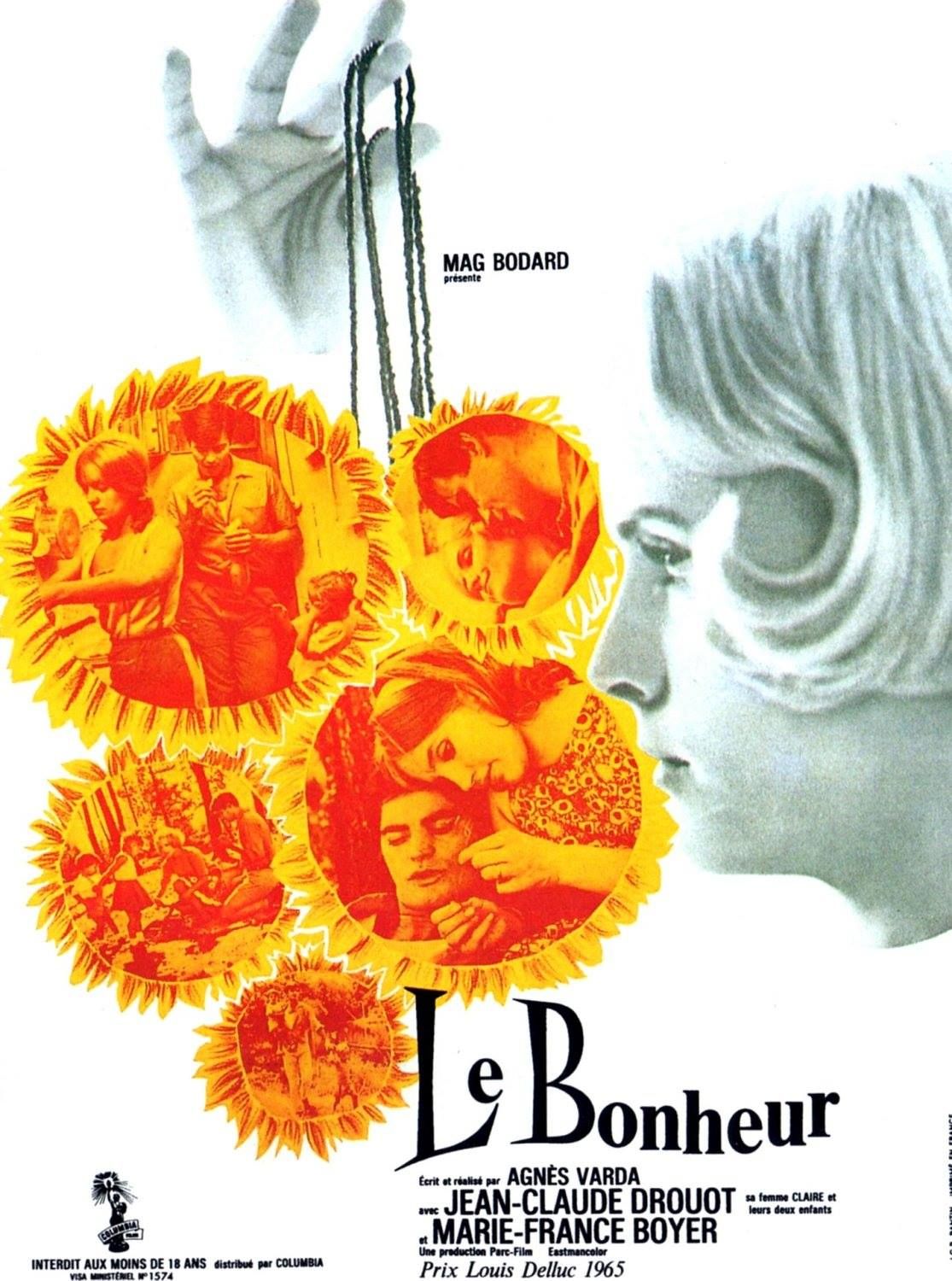

Flora everywhere! A film so glowing and bright you almost forget the misery at its core. A saturation so romantic, it makes the finally-tied-up loose ends all the more bitter. You watch until the end and realize you've sat and swallowed this type of amorous, cinematic lie all the time in real life. But Varda acknowledges this timeline. She points to the aggressor and refuses to settle for that (quite brilliantly I might add, through a Mozart quintet as her vehicle). A truly 'men (and the male gaze) ain't shit' type of film. Thank you for this, Agnes.

More coming soon!
About

Because I spent so much time writing about film in college, I had stopped altogether once I graduated. I just didn't want to feel like I was doing homework anymore, you know?
But in truth, I've missed it.
Writing has always been my first love. And films are my forever love. So in 2019, I started documenting my stream of consciousness for beloved films on my Instagram, found under the hashtag #pamsfilmdiary.
But I've realized those snippets I would haphazardly post on social media deserved a place a bit more precious. I wanted to be able to house those scribbles somewhere where I could see all of them together. A permanent home for my inconsequential musings. Thus, the birth of Pam's (Digital) Film Diary.

